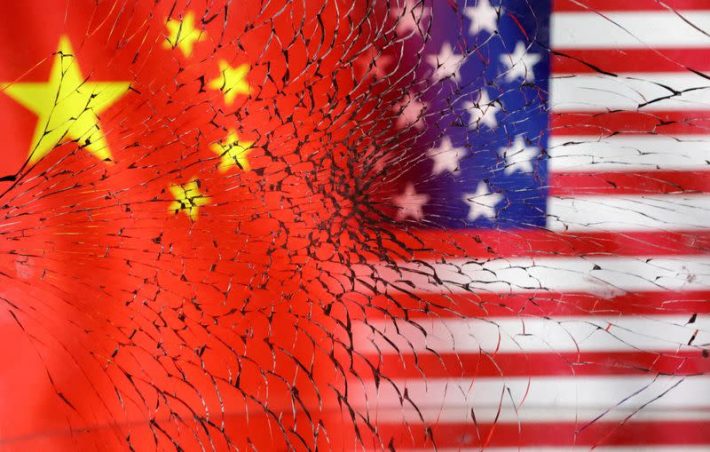The United States signed an agreement with China on Wednesday that should speed up shipments of rare earths, a White House official said on Thursday.
‘Should’ is the key word there, as there is serious concern that Beijing will continue to comply – slowly – with their trade deal. Indeed, there are signs that many carmakers and other companies in the US waiting to receive rare earths – and even Trump Administration officials – are far from certain that Beijing will expedite its exports.
Call it revenge, tit for tat, or what you like. That’s because Western companies have been waiting for weeks for magnets while Chinese officials scrutinized their applications for rare earths – and often rejected them, according to a report on Thursday by the Wall Street Journal.
ALSO SEE: Germany Tells Apple, Google: Cut DeepSeek From App Stores
Applications have been granted so rarely that Western companies fear the shortages could soon affect manufacturing, it said, adding that “companies are so desperate for magnets that they are opting for expensive airfreight whenever licences are granted to prevent costly production shutdowns.”
Some manufacturers are even experimenting with workarounds that allow them to make their products without the most powerful magnets, it said.
In early June Reuters reported that licences would be granted to three top US carmakers, but on Monday (June 23) a Ford official said the company was still scrambling to get enough magnets to maintain production levels.
And officials in the White House also appear to be worried that Beijing will continue to ‘slow roll’ its supply of rare earth elements for carmakers and other importers in the US.
Is the US hedging on ethane exports?
One sign of that was news that ethane traders, Satellite Chemical USA and Vinmar International, have received US government letters allowing them to load ethane on vessels destined for China – but prohibiting unloading ethane in China without authorization, according to a Reuters report that quoted unnamed sources familiar with the matter.
The letters received on Wednesday from the US Department of Commerce follow a licensing requirement imposed several weeks ago on ethane exports to China, stalling shipments and leading vessels to drift or anchor around the US Gulf Coast.
The letter could be perceived as the administration preparing to lift the restriction, industry sources and analysts said.
Even so, there would likely still be some reluctance to load ethane, which is extracted from US shale gas and primarily used as a petrochemical feedstock, as China-bound vessels could be stuck in limbo depending on how long the full-path restriction plays out, AJ O’Donnell, an analyst at Tudor Pickering Holt & Co, said.
The US also sent similar letters to Enterprise Products Partners and Energy Transfer on Wednesday. China’s Satellite Chemical Co Ltd, the parent of Satellite Chemical USA, and Vinmar declined to comment.
Around half of US ethane exports head to China, and the halt in flows has pushed ethane prices lower on worries of domestic oversupply. The restrictions are likely to cut into profits of top ethane producers.
China taking rare earth licensing ‘very seriously’
For now, US officials are hoping Beijing upholds its side of the agreement but the level of trust, or respect, between the two sides looks to be wafer thin.
During US-China trade talks in May in Geneva, Beijing committed to removing non-tariff countermeasures imposed against the United States since April 2, although it was unclear how some of those measures would be walked back.
As part of its retaliation against new US tariffs, China suspended exports of a wide range of critical minerals and magnets, upending the supply chains central to automakers, aerospace manufacturers, semiconductor companies and military contractors around the world.
“The administration and China agreed to an additional understanding for a framework to implement the Geneva agreement,” a White House official said on Thursday.
The understanding is “about how we can implement expediting rare earth shipments to the US again”, the official said.
US Commerce Secretary Howard Lutnick was quoted as saying: “They’re going to deliver rare earths to us” and once they do that “we’ll take down our countermeasures.”
On Friday, China’s commerce ministry said the two countries recently confirmed details on the framework of implementing the Geneva trade talks consensus. It said China would approve export applications of controlled items in accordance with the law. It did not mention rare earths.
While the agreement shows potential progress following months of trade uncertainty and disruption since Trump took office in January, it also underscores the long road ahead to a final, definitive trade deal between the two economic rivals.
China has been taking its dual-use restrictions on rare earths “very seriously” and has been vetting buyers to ensure that materials are not diverted to US military uses, according to an industry source. This has slowed down the licensing process.
Deals with allies looming
The Geneva deal had faltered over China’s curbs on critical minerals exports, prompting the Trump administration to respond with export controls of its own preventing shipments of semiconductor design software, ethane, aircraft engines and other goods to China.
After a second round of talks in London, Trump said there was a deal with China in which Beijing would supply magnets and rare earth minerals while the US would allow Chinese students to study in its colleges and universities.
The more positive news this week was that the US appears to be close to signing framework trade agreements with about 10 other countries.
President Trump said the United States could have a deal shortly that will “open up” India. And Vietnam said this week it also hopes to have a framework agreement sealed before the pause of US tariffs ends early next month.
The chance of getting more positive results from allies appears far greater.
- Jim Pollard with Reuters
























